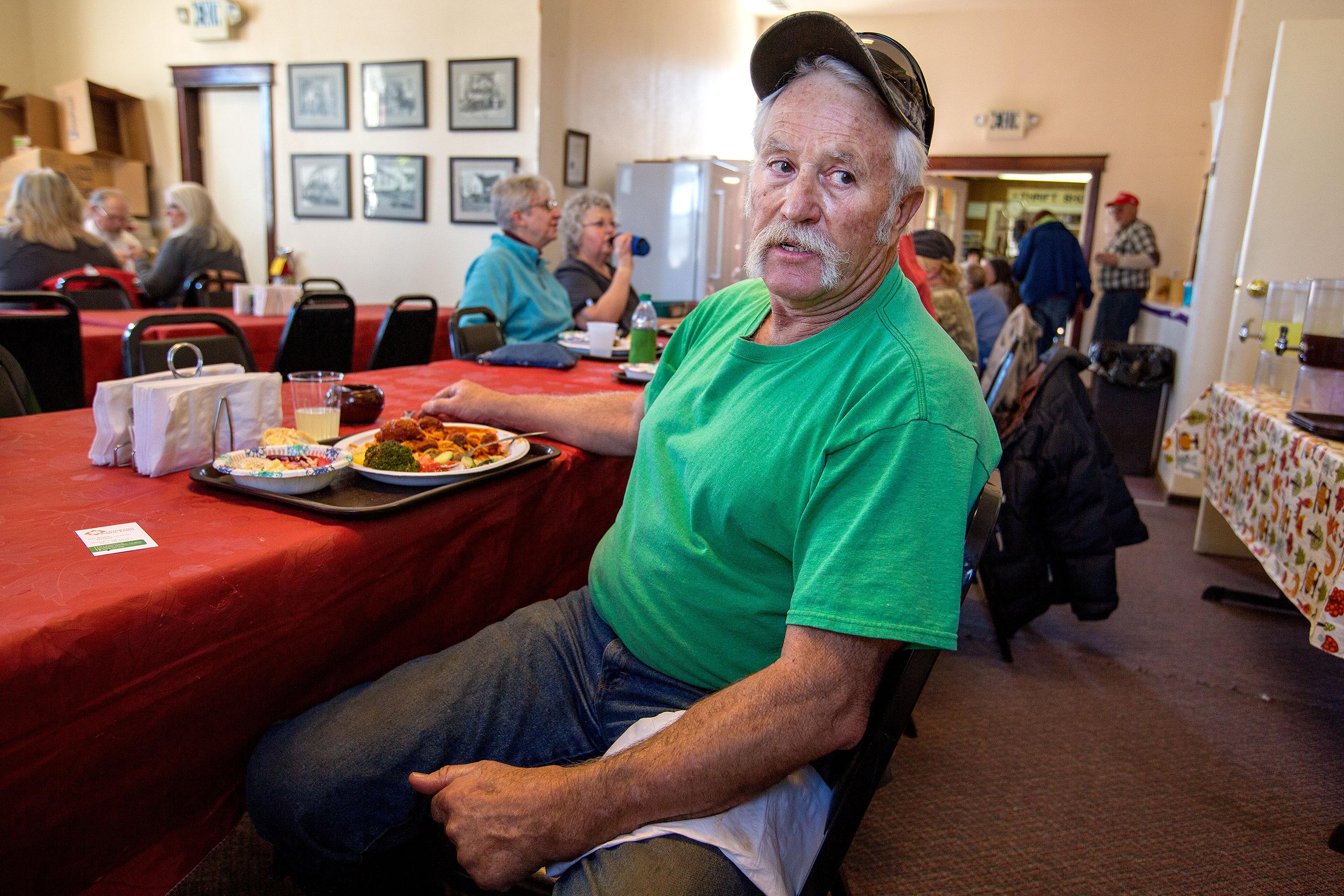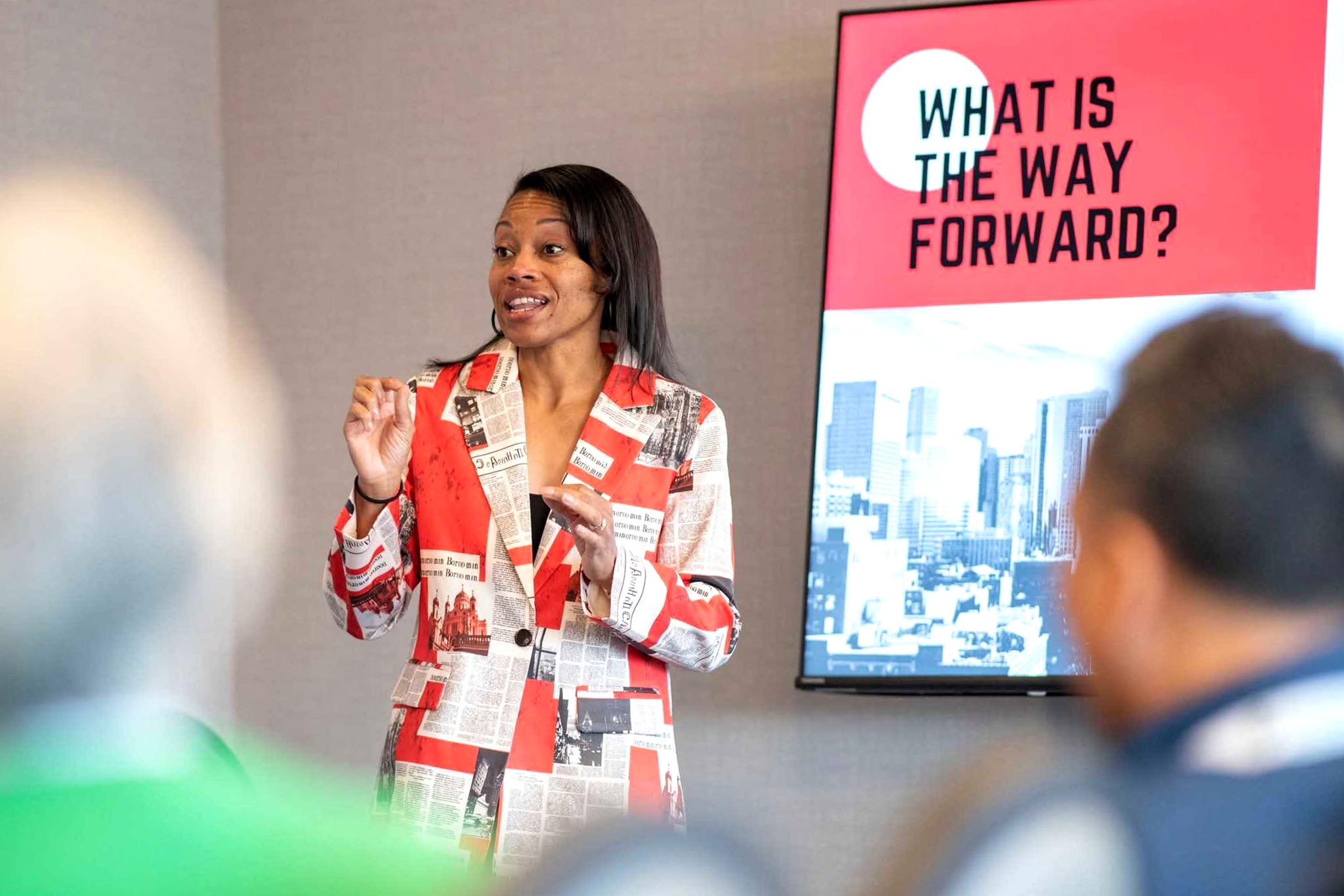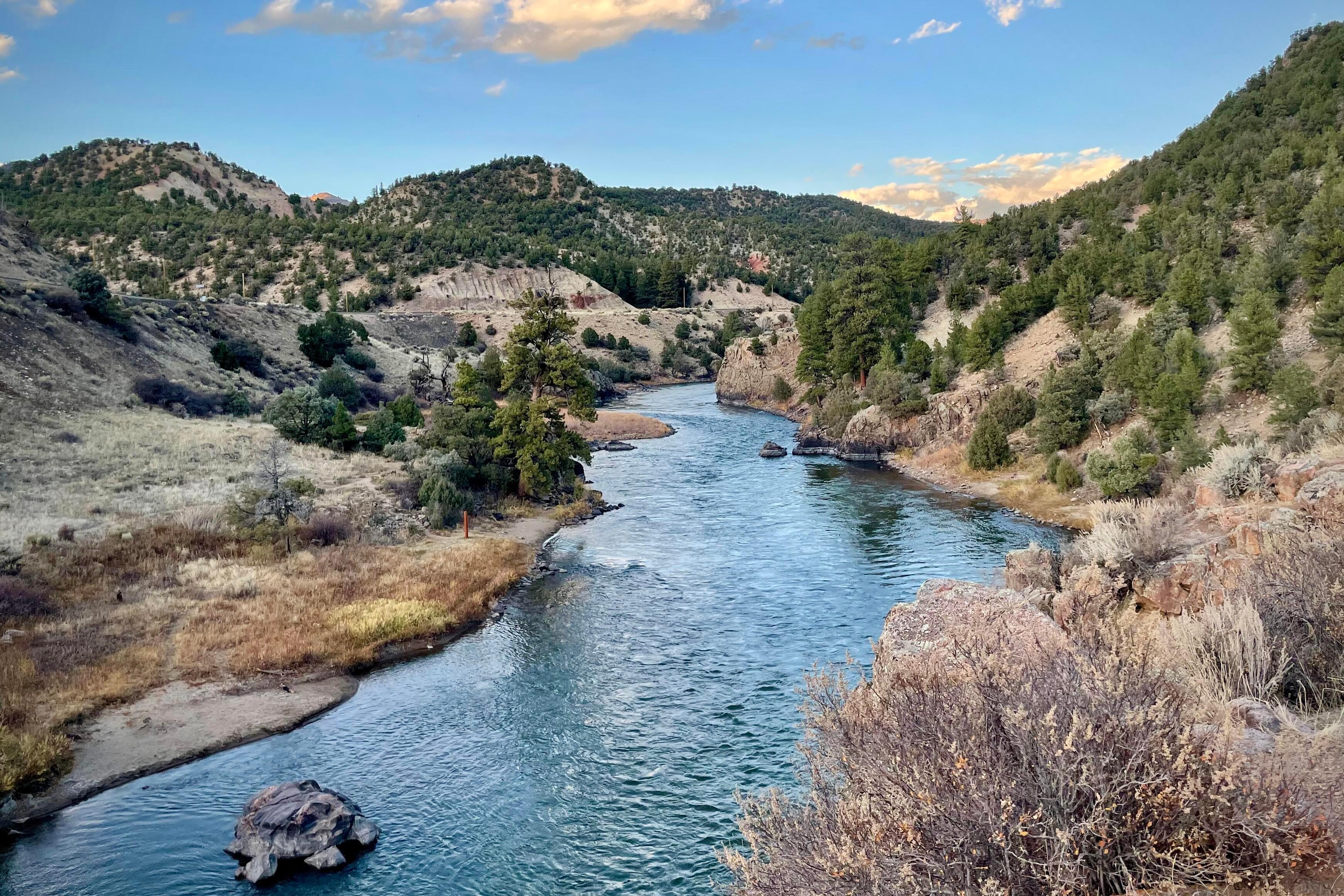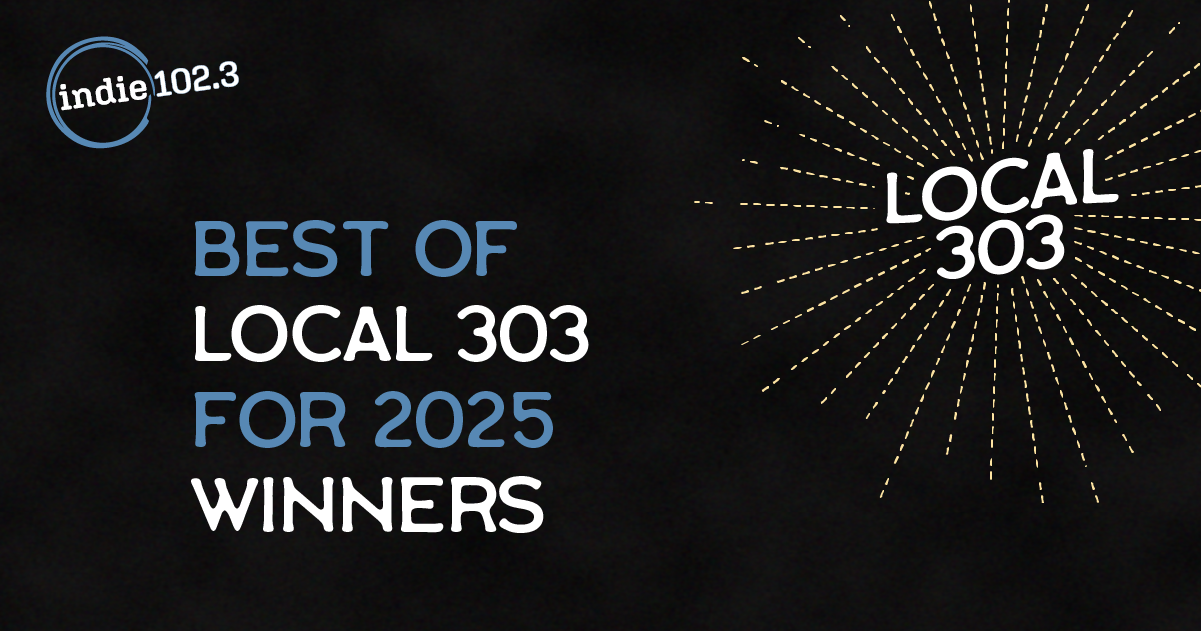
Our Voter Voices survey identified the economy and cost of living as a top issue among nearly all groups, especially voters age 18 to 29 and conservatives. If you’re a voter who’s concerned about the cost of living, here’s where your vote has the most impact.
By Jennifer Brown, Colorado Sun
One of the top issues on the minds of Colorado voters this election is the cost of living, with about 15 percent of people who took our Voter Voices survey saying they intend to focus first on the economy as they mark their ballots.
Under that big umbrella term, Coloradans are concerned about the price of groceries, gas, utility bills and everything else it takes to keep households running. That’s not shocking considering that inflation has cost the average household a total of $34,194 more since 2020, according to research from the Common Sense Institute.
“That’s the cost of higher education tuition,” said Kelly Caufield, the institute’s executive director. “All Coloradans should care about the economy and the cost of living here.”
While economists say inflation is “cooling,” Coloradans are still feeling the economic crush of the past few years. The average rent for a one-bedroom apartment is about $2,000 in Denver. The average price of a home in Colorado is now above $540,000. Food prices in Colorado and across the country rose 25% from 2019 to 2023.
John Stenmark, a Gunnison County resident who responded to our survey, said cost of living is his top concern this election, just ahead of national security and the environment. He did his own math to find out how much more he and his wife are spending now compared to 2021 — 19% more on the gas and electric bill, 20% on groceries, 48% on property taxes and 101% more on homeowners insurance.
“We’re retired and fortunate to own our home and so are insulated from the crazy increase in housing costs in the county,” Stenmark said in a follow-up email after the Voter Voices survey. “My heart bleeds for the working families who are earning an honest living and struggle to find reasonably-priced rentals. And, for these folks, buying a place simply is not going to happen.”
If, like Stenmark, your top concern is the high price of living in Colorado, how should you vote? A large part of that answer depends on which economic policies you believe will work and how those policies match up with your other priorities. You can find individual congressional candidates’ views on their Voter Guide pages. Here are some other things to watch for on your ballot.
State ballot measures to collect more tax dollars
The top tax measures on the November ballot are regional and local, including some so-called “de-Brucing” measures that would remove specific governments and special districts from the tax limits set under the Taxpayer Bill of Rights. (The de-Brucing nickname is a reference to Doug Bruce, the author of TABOR and a former state representative.)
The impact of those measures is that in some years, it will mean less money in people’s pockets in the form of tax refunds. But, and this is the key question for voters, leaders argue they will use the money for the greater good.
One measure in the Denver area, 7A, would allow RTD — the Regional Transportation District — to keep spending about $50 to $60 million a year above the TABOR cap instead of refunding that amount to millions of people who made retail purchases in the eight-county RTD taxing district. If it passes, RTD could keep all of its sales tax revenue permanently.
TABOR exemptions for RTD that were passed in the 1990s are scheduled to expire this year, and the transportation authority has seen its ridership drop since the pandemic while its operating budget is increasing. RTD had an operating budget in 2014 of $477 million, an amount that has grown to more than $1 billion.
In Jefferson and Arapahoe counties, voters are being asked to allow their county governments to keep more tax dollars than is allowed under the TABOR.
Jefferson County commissioners are asking for a permanent increase in county revenue, which would be about $30.5 million this year. That’s 4% of the county’s $781 million budget, which would go toward roads, bridges, mental health care, public safety and other functions. Voters have rejected this proposal twice before.
A similar measure in Arapahoe County would allow the county to collect an additional $74 million annually, or 14% of total revenue.
Sales tax increases
Denver voters have two measures on their ballots that propose raising sales taxes and would give the city the highest tax rate in the Front Range (rising above Boulder’s 9.05%).
One is an affordable housing sales tax, proposed by the Denver City Council and Mayor Mike Johnston. The 0.5% tax would generate an estimated $100 million that the city says would fund 45,000 housing units beginning next year.
The second measure would raise sales taxes 0.34% in the city to bring in $70 million in annual revenue for Denver Health, which has seen its cost of caring for people without insurance double since 2017. The hospital system says it provided about $136 million last year in care without compensation.
Denver voters must decide whether increasing access to housing and health care outweighs what is effectively a cost-of-living increase for people who shop in the city. The Denver Health initiative would cost residents about 3 cents on every $10 purchase, excluding food, medicine, diapers and feminine hygiene products.
Other ballot measures that could lead to increased spending
Even ballot measures that don’t seem to be about cost of living can be related. Two statewide measures ask voters to consider whether it’s worth potentially paying more in taxes for public safety and educational choice.
Amendment 80 would enshrine school choice in the state constitution, opening the door, critics say, to taking money from public education to fund private school. The proposal comes after school-choice groups have failed in the past to pass voucher programs that would allow parents to get tax refunds to help pay for private school, and after a voucher program in Douglas County was struck down by the courts. It’s supported by Advance Colorado, a conservative action committee.
Proposition 130 would spend a one-time $350 million in state funds on law enforcement, including for recruiting, training, salaries and death benefits for officers’ families. That money would come out of the total state budget, leaving less for other programs. Proponents are hoping that the cost of the “Back the Blue” measure will be overshadowed by people’s concerns about crime.
Presidential race
Both presidential candidates are touting economic proposals intended to decrease the burden on taxpayers.
Former President Donald Trump is proposing to end taxes on Social Security benefits and on tips for hospitality workers. He’s also vowed to offer incentives to foreign companies that relocate manufacturing to the United States and hire American workers. And he wants to impose tariffs on other countries that trade with the United States, including a tariff as high as 200% on vehicles imported from Mexico.
Vice President Kamala Harris said she also supports ending taxes on tips for restaurant workers. She has called for expanding the child tax credit to $6,000 from $2,000 for parents, and raising the federal minimum wage. Colorado's minimum wage is $14.42 per hour and will rise to $14.81 on Jan. 1, but the federal minimum wage has been $7.25 per hour since 2009. Harris also is pitching tax breaks for small business owners and first-time homebuyers.
Congressional races
Candidates running to represent Colorado in Congress all say the economy is a top issue, but have different ideas about how to rein in the cost of living.
Congress can affect the cost of living with policies on taxes, industry regulations that impact jobs and social services programs that provide food and housing assistance.
For example, in Colorado’s highly competitive 8th District, which includes Greeley, Brighton, Commerce City and Thornton, incumbent Yadira Caraveo, a Thornton Democrat, and challenger Gabe Evans, a Republican state representative from Fort Lupton, both say they want to support workers and create more affordable housing. But they have different approaches.
Evans said he wants to reduce regulations that lead to job losses, including in the oil and gas industry. Caraveo was a prime sponsor of a 2019 law passed by the Colorado legislature, Senate Bill 181, which rewrote the state’s oil and gas regulations to prioritize public health and the environment.
Caraveo said she wants to use grant money and tax incentives to entice developers to build more affordable housing. Evans said he would try to encourage more housing construction by reducing “excessive” regulations and building codes.
Caraveo is touting her work on transparency on hospital prices and drug costs, including setting a price cap on insulin. She introduced the Lowering CAR Insurance Act, which would require the federal government to conduct an annual report on the car insurance industry and provide recommendations on lower costs. Caraveo is also a supporter of the Low-Income Household Water Assistance Program Establishment Act, which would assist working families in paying their water bills.
Evans said he would cut punitive regulations, excessive government red tape and “empower American energy and agriculture again.” He would also extend Trump tax cuts.
State candidates/legislators
During a special session this summer, Colorado lawmakers headed off ballot measures that legislative analysts said would have cut taxes by $2.4 billion, throttled their future growth and risked the state's ability to fund K-12 schools and other public services.
Lawmakers instead agreed to cut taxes in 2025 by $769 million — the fourth round of tax cuts in less than a year. Colorado now has a $900 million budget hole.
To close the budget gap, the state will either have to cut spending or dip into its reserves, which under state law are required to set aside 15 percent of general fund spending.
Lawmakers in the next few years will have to make key decisions on how to fund K-12 education, which will receive less local funding because of property tax cuts. They also have to deal with unexpected Medicaid costs, after the state Department of Health Care Policy and Financing overspent on the low-income health care program by as much as $154 million last budget year.
In terms of housing costs, lawmakers have power to pass wide-ranging legislation that can affect the availability of housing. Recent examples involve the state government expanding tax credits for affordable housing projects and overriding local policies.
A new law passed this year, for example, requires 31 local governments to change their zoning laws to allow more housing units along major bus and rail corridors. It requires local governments to zone for at least 40 units per acre within a quarter mile of bus stops and a half mile of rail stations. Another new law allows people who live in metropolitan planning organizations to build accessory dwelling units or “granny flats” on their properties. The law blocked many existing local regulations that prohibit ADUs.









